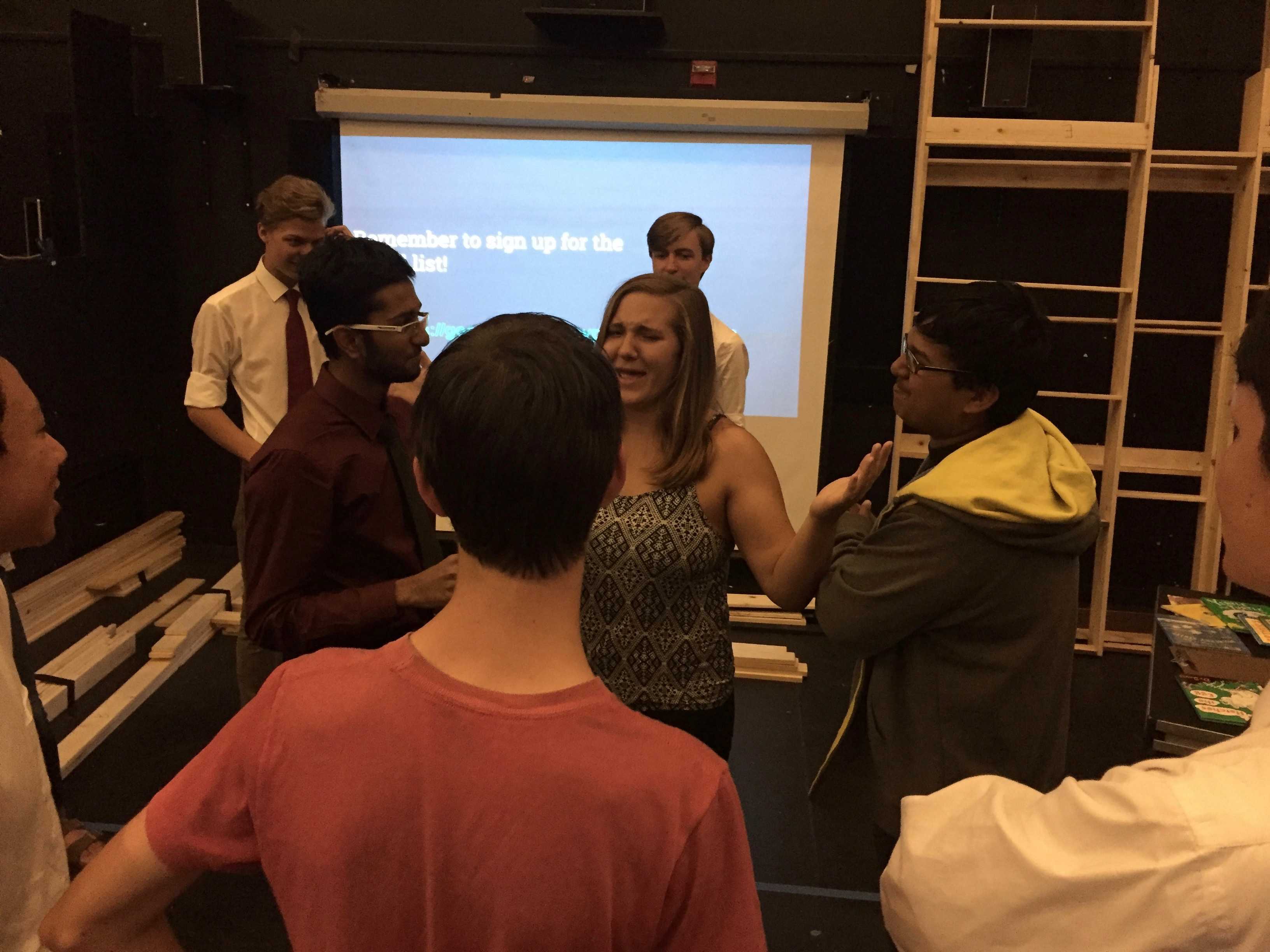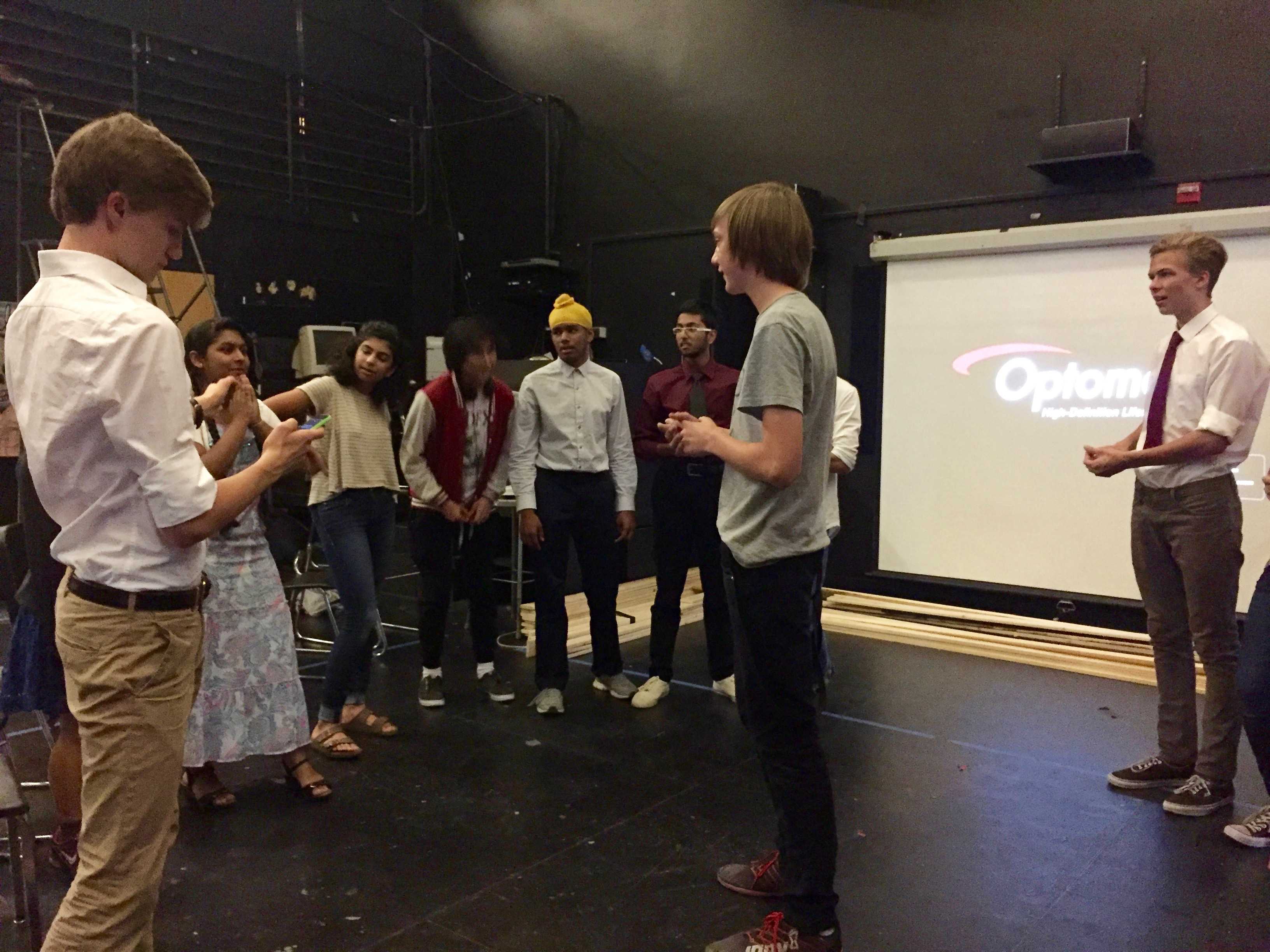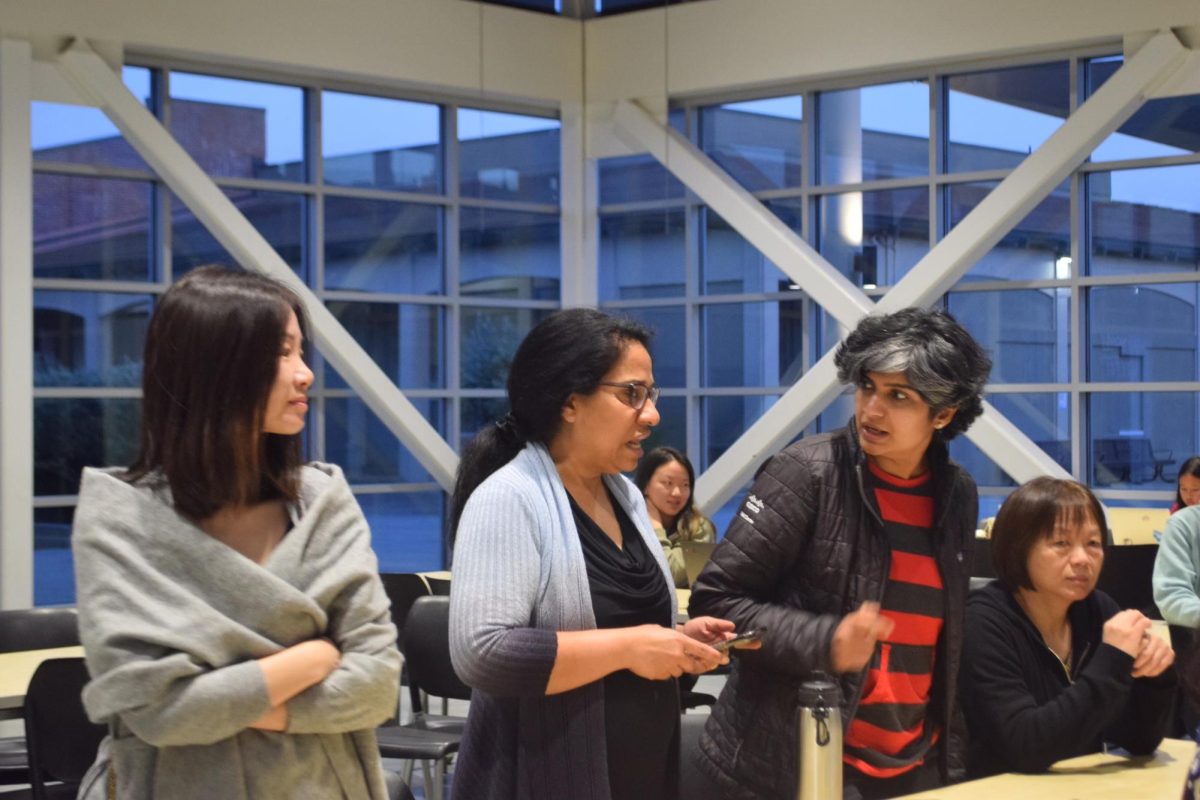On the first MV Improv Team meeting of the year, team captains juniors Olivia Lassa, Benjamin Pribe and Jeremi Kalkowski started off Thursday lunch period on Oct. 5 in the black box with games that ranged from “I am tree” to “Two-minute expert.” These games, as Improv staples, gave a taste to potential club members, called “players,” of what the club meetings will look like in the future. From scenes done in the style of a documentary to a pantomiming crystal ball, take a look at the highlights from the first team interest meeting.
“I am Tree”
How to play: Players form a circle. One player (in this case, captain Olivia Lassa) starts off in the middle by saying “I am tree.” Then, other players come into the circle as characters that interact with the tree. Two players will establish a relationship with the tree, who then decides which of the two people to leave in the middle as the new character, based on their relationship with the tree. The game continues until one player becomes a tree again, stating “I am tree.”
“Layups”
Players form three lines. A player from the first line to the left is in charge of creating a character, another player from the second line creates a relationship with the character, and a player from the third line describes the conflict between the two characters. In the example below, freshman Alex Yang begins with an action, waving his arms up into the air, and junior Yash Goyal joins him with what he interprets as a rain dance, establishing a relationship with Yang. Then, junior Ian Mcculloch “makes it rain” with pretend money.
“Crystal Ball”
This game involves 3 players: a fortune teller, a customer and a crystal ball. The fortune teller leaves the room while the audience helps brainstorm who the customer will fall in love with, where they will meet said person, and the love of their life’s deepest, darkest secret. Then, the fortune teller is brought back into the room. The crystal ball acts out each of the three answers, with interpretation assistance from the customer. This continues until the fortune teller guesses each of the three answers. In the example below, Kalkowski falls in love with Julius Caesar, whom he meets at a salad bar. His deepest, darkest secret is that Caesar salad dressing was not actually supposed to be dressing, but was a kind of dress.
“Styles Replay”
Players first create a scene. Then, the audience defines a theme for the scene to be “replayed” in. In the below example, Improv Club secretary sophomore Elika Hashemi creates a scene with co-captains Pribe and Lassa and club member junior Yash Goyal about a spelling bee. It is then “replayed” in the style of a documentary.
“Two Minute Expert”
Often the conclusion of every improv club meeting, the audience brainstorms a category, such as “cheese,” in the example below. Then, the team is divided in half and one of the captains becomes a judge. One person from a team starts to discuss the topic, as if they are the “expert” in the field. A member of the other team can file an “objection” to the judge based on what the original expert says. If it is sustained, then they replace the expert. The game continues until two minutes have passed. The goal is to have a member of your team be the expert at the end of the two minutes.
 The club has more plans to do more competitions this year, and they plan to work with other high school improv clubs, Lassa says.
The club has more plans to do more competitions this year, and they plan to work with other high school improv clubs, Lassa says.
“In years past improv has usually had one competition, which has just essentially been dividing ourselves in half and then having us compete against each other,” Lassa said. “I’d really like it if we could interact with other improv teams as well.”
She also wants to try to establish a wider member base, reaching out to other students outside of the drama department more. She emphasizes that members don’t always have to get up in front of the group if they are uncomfortable with it.
“Participating in improv doesn’t have to be playing the games,” said Lassa “It can also just be watching [or] giving suggestions.”
With a desire for a larger member base comes a need for organization, which sophomore Elika Hashemi, the club’s secretary, feels they have improved upon from last year.
“We have a designated email now, where we send out emails from that account,” she said. “And we’re gonna start the weekend practices earlier this year.”
Club captain junior Jeremi Kalkowski says that the skills he has gained through improv have helped him beyond the club, as well.
“For me, it definitely helped me think more on my feet, just have better cognition skills, that aren’t even applied to public speaking or drama,” he said. “I will think better on a test thanks to improv.”
And while he believes that this personal growth is important, for him, the most important thing is having fun.
“That’s what improv is all about!” he said.
To potential club members, Lassa says “you’ll come, you’ll laugh, you’ll have fun. Your lunch will not be wasted.”









